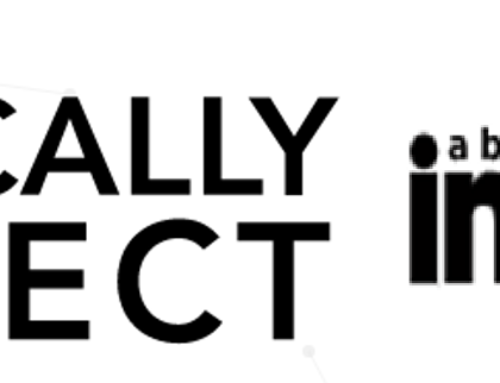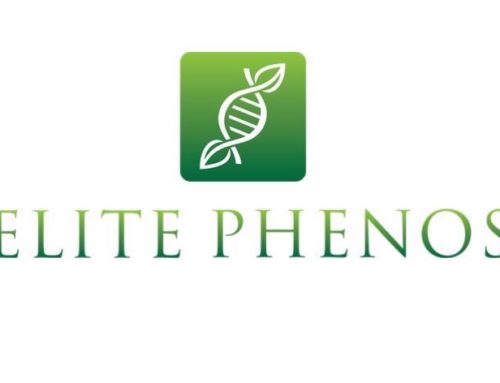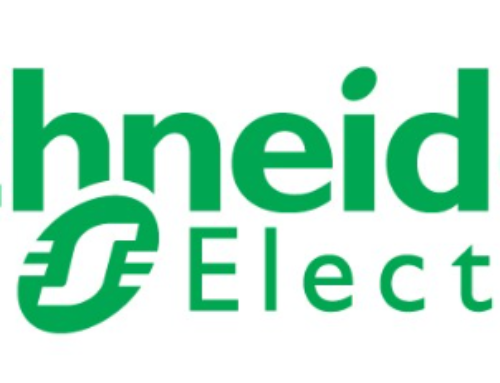This week we continue our blog partner series with Kim Stuck, Founder and CEO of Allay Consulting.
Travis (Artemis): Today we are meeting with Kim Stuck of Allay Consulting, a partner of Artemis. We are very excited to chat with you today. Tell us a little bit about Allay Consulting.
Kim (Allay Consulting): Thank you for having me Travis. Allay Consulting is a compliance consulting firm and we work in a few different areas of compliance. Our focus is primarily on FDA, OSHA and fire code compliance. Right now, we work in 50 States and have two different locations, one in Denver and one in Oregon. The one in Oregon just opened up and we are really excited to be able to help people out there. We work in all kinds of cannabis facilities, from dispensaries to grows to manufacturing. We deal with all cannabinoids because the regulations which apply are all the same. We also do GMP certification and ISO certification assistance. So, although we aren’t a certifying body, we assist people with getting them certified- Putting together documentation, training staff, that kind of thing. We also do compliant facility buildouts as well as one-time audits. So, our services vary depending on the needs of the business and what people need to be successful, but primarily we specialize in those kinds of areas.
Travis: That’s really exciting and it’s awesome you touch on so many different areas. Given all that Allay Consulting does, what is your background, and can you tell us a little bit about how all this came to fruition.
Kim: Absolutely! I started in the public health sector as a restaurant health inspector at DDPHE in Denver. While I was there, cannabis became legal recreationally and the health department was not quite sure of how to manage it. They realized they couldn’t have people making edibles, tinctures and oils while growing and otherwise incorporating cannabis into their businesses without having some kind of health department oversight. So, I volunteered to be part of the cannabis team and started as their marijuana specialist. That was really exciting. It was a super crazy time too. It was an exciting time to be a part of the government at that time because nobody had ever regulated it. Nobody had ever thought about the public health significance of cannabis before. And so we were essentially writing new regulations and figuring out how to deal with this different kind of industry. I learned a lot.
I was there for a little over three years and you know, thank God for the industry because they taught me so, so much. I went into thousands of different facilities and met lots and lots of really interesting and cool people. After a while I realized just how much I loved the industry. I fell in love with the plant. I fell in love with the people and I just thought that there was so much potential for the businesses and people. The problem was- There was a common issue with compliance. People just didn’t really know what they were doing and although they thought that they understood what they should be doing to be compliant, they weren’t. It wasn’t because they were incapable or being malicious, it was just difficult to conceptualize evolving regulations and apply it to an emerging industry. And so I really thought, hey, maybe I should start my own company. As a regulator, you really can’t assist people. Sure, you can tell them what the regulation is and say that they need to be in compliance with that regulation, but you can’t really tell them how to get there. You’re not allowed to because of liability issues. Well, when you’re a consultant, your job is to tell them how to get there and to give them options of what they can do. So, after really looking into it, I went to my higher ups at DDPHE and told them of my plan to become a consultant. Thankfully they were very supportive and allowed me to start my own company in 2017.
So now, we can essentially be a buffer between cannabis companies and regulators. We can speak the regulator’s language. We understand what they’re asking for 90% of the time and we know how to get clarity if we need to do so. We can navigate compliance for our clients which most are on retainers and have been with us for a year. They like to be able to give us a call whenever they have a question or to review their labels whenever they have a new label coming out or when they need help with things like help with changing SOP’s. We just try to be there as a support system for our clients so that they can be successful, especially the compliance officers who can get really busy. It’s helpful to be able to take stuff off of their plate. Even if they are hiring a new compliance officer, a lot of times we can train that person. It’s really amazing just how much we can really do for a company.
Travis: It’s so exciting to hear what you are able to accomplish in getting these companies to the next level and ensure they’re operating within the regulatory frameworks. One of the processes I find really exciting is what Allay does with GMP certification and how they help facilities reach that capability. Talk a little bit about how GMP is important in the industry and how Allay has helped to implement those changes.
Kim: As a company we are very on board with GMP. Obviously good manufacturing practices is a huge, huge thing. GMP is essentially FDA regulations just put into a different context. GMPs are not only a means to be compliant with FDA regulation but are above and beyond the scope of the FDA. Obviously, we love GMP but for a very long time it wasn’t allowed in the industry. It wasn’t allowed in THC, CBD or any cannabis facility at all. The accredited certifying bodies were just older companies, some of them 200 years old companies which were very corporate, and they looked at cannabis and were not interested in getting involved for a very long time. So, me and my team rallied to convince these guys that they should be involved and that they should allow cannabis to get these certifications because it’s really- really important.
As you know, when it comes to food safety and public health, the industry of cannabis is really unregulated. Most health departments don’t even go into these places. FDA obviously doesn’t go in because it’s not federally legal. Further, the FDA for the hemp side of the industry hasn’t even come out with regulations-yet. So, it’s kind of interesting that they even allowed that. But it only became available to the industry about six months ago. So if you see people saying on social media that they can’t get certification for GMP or something to that effect, that used to be very true. But, just recently, it is allowed.
So we’re really excited we were a part of it. We have three certifying bodies that we work with right now that are accredited by ANSI which is the real deal. We obviously can’t talk about all of our clients due to NDAs, but some of our clients allow us to say that we work with them and in return we get to put a post on social media that they got the certification. Which is helpful because people begin to realize “Oh, we can actually get that. I didn’t even know we could get that”. And those certifications are helpful not just on the hemp side, we have an accredited certifying body that will do THC products and facilities which also includes grows as well.
So, it kind of depends on which certifying body a client decides to pursue. Our clients may contact us and they say they want GMP certification. The first choice we make is; which certifying body is the best one to go with. We then mold everything. All the documentation, the SOP’s, the requirement for training, and so forth. Essentially, the audit to what that certifying body requires because each one of them is a little different. So yeah, so we kind of started that whole trend or at least helped with building it and I think a lot of people had their fingers in it and they all wanted it to happen, but now it is very much a possibility to reach that certification. So we’re really excited to be able to offer that to our clients.
Travis: That’s amazing. So from a cultivation standpoint, what are some of the challenges you see for growers? In what ways can growers address some of the issues to be more capable of attaining certification?
Kim: Yes, so with growers, you can get GMP certification on your grow. We do have a certifying body that does allow that, which is amazing. It’s almost unheard of. But if you’re selling to a GMP certified company that’s doing processing whether flower or trim they are probably going to require a full COA. A full COA meaning testing for pretty much everything before it gets to the facility. That includes pesticides, heavy metals, mycotoxins, mold, microbials and so on- All of which is an important thing to do. A lot of growers, at least on the hemp side, don’t necessarily do that all the time.
So, you know, usually that’s the one thing that’s the last for, “Hey, do you have a COA… What’s on your COA… What are you testing for”? And most clients will intake after they see a COA and then retest it to make sure it matches. Unfortunately, we’ve seen a lot of Photoshop COA’s, which is insane, but it happens in this industry for some reason. I don’t think it’ll happen for long once the FDA gets involved, but we are excited people are starting to do their own safety and quality assurance in the industry proactively; which includes requiring the growers or whomever they’re buying products or ingredients from to follow those same kinds of standards.
Travis: That makes sense. For traceability, there have been many methods to keep account of all these factors. What are some of the more effective tools to, for example, differentiate between THC levels and other metrics that you believe will help people be efficient and make sure that all of that data is being utilized correctly.
Kim: One of the main themes of GMP and GMP certification is traceability. So, for example, when I worked for DDPHE, If I would go into a place and discover a product with pesticide residuals in it, let’s say it was a shatter or wax or something like that. It may have a couple of different pesticides in it, so I would have to find out where that product came from or what grow did that product come from. Back then, one shatter or wax could have originated from several different grows, which doesn’t happen as often nowadays because of all these investigations that result from tracking a product. As a result, I think people realized the importance of just using one grow for each batch, harvest badge and all that because it’s just a lot easier to be able to trace back.
Either way, I was baffled, because a lot of people were putting things in metric on the THC side, but on the hemp side, on the CBD side people weren’t keeping track of anything. So, they weren’t going to have any batch number system at all. And that is actually fairly common a lot of times when I do that initial first gap analysis audit. We perform a gap analysis to measure the gaps within their compliance and their facility. Sometimes they won’t have a batch number system. They may not know what ingredient went into a product or what farm it came from, or what manufacturing facility it came from and that is very- very important to know. In fact, the liability will actually go to you if you don’t know where it came from. We call this a really bad situation for anyone. So, for example, let’s say you had an oil that you were using to make brownies or another type of edible and that oil was contaminated. If you couldn’t tell where that oil came from or which batches that oil went into, all the regulators will know is that you are making contaminated products. If you can’t identify which products are contaminated and which ones aren’t, they will probably conduct some testing.
If things come back contaminated and even if it’s a mix of like contaminated and non- contaminated, they’ll usually do an “any and all recall”, which is literally the worst recall you could ever have because it includes everything in your facility that has ever been made by your company’s being recalled because they can’t tell which things were contaminated and which products are not. Even worse, if anybody gets sick, that company would be liable for it because they can’t even tell where that product was coming from. So, it could develop into an issue. There is food safety litigation that has resulted in CEOs ending up in prison for life because of things like this. So, it’s a really serious thing to be able to track and trace. We usually recommend some form of software to track and trace and smaller companies shouldn’t be put off by the costs to get the software.
In the cannabis industry, as you know, obviously Travis, there are options like Artemis, which are really affordable. A lot of our clients use these, and they work pretty well. Excel spreadsheets do also work, but you have to make sure your employees are well-trained, and they keep up with it because if not, major issues can develop. Like I said, those issues can be incredibly costly, so I recommend keeping up on it as much as possible.
Travis: That’s awesome. So here’s the fun question that I always like to ask… if you could give just one piece of advice to share with the cannabis and hemp industry coming from your years of experience… what would that be? What is one piece of wisdom that comes from Kim Stuck?
Kim: Well I cannot help but think about the regulations that are coming down the line. Being focused on the future of the industry is probably the best thing that you can do for your company. The companies that just want to build so they can sell-out are kind of not the companies that I really want in the industry. And that’s kind of sad to me. Most of our clients, rather, I would say all of our clients right now are looking for longevity. They want to be in this industry. They love this industry. They care about their patients and their consumers. Eventually no matter what anyone says, this will all be federally legal. THC and CBD products are going to be federally legal. This industry will be likely regulated by the FDA and OSHA. Both are heavy hitters. These agencies are the ones that can shut you down and fine you the most easily. OSHA fines are astronomical and can put a business down. If you’re not thinking about those realities, your company’s not going to last very long. I believe any company that’s thinking about the future of their business in terms of five years or so down the line and the type of regulations they may have to follow are the ones that are going to be doing really- really well.
That’s why my company exists – to help people understand what those regulations are and what they are going to be so that they’re prepared for when these kinds of changes happen. That’s the best kind of advice I can give, providing my regulatory experience. I’ve just seen some really terrible things happen to some really good people and my entire goal is to try to prevent those things from happening to even more really great people in this industry going forward.
Travis: I absolutely agree and I think that’s one of my favorite elements of working with you; it’s that we both believe! We understand the importance of looking to the future so individuals and businesses can start building their processes and getting ready for changes. If there’s any constant in the cannabis industry, it’s change. Being bulletproof in this industry is one of the most important things and why Allay is such a powerful partner – for everybody. Kim, again, I want to thank you so much. I appreciate your time and am looking forward to massive success as you continue to grow and help the industry get better and better.
Kim: Awesome! Thank you so much for having me Travis.





Leave A Comment